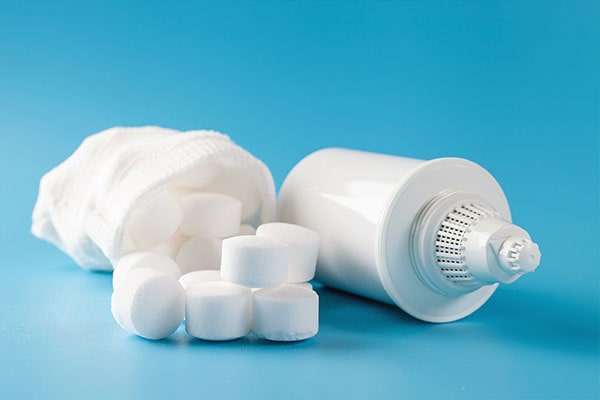Is your skin dry, flaky, or itchy? Are you breaking out more often than you should? The cause might not be your skincare regimen. It might be your water.
Why is hard water so bad?
.jpg?width=600&height=400&name=FSS_HowDoesHardWaterAffectYourSkin_InlineImage_1-min%20(1).jpg)
Hard water is high in minerals, specifically calcium and magnesium. About 85 percent of Americans live in an area of the country with some degree of hard water.
The minerals are harmless to human health from a drinking and cooking standpoint, but they can irritate your skin. Why?
The extra calcium and magnesium dry on your skin after a bath or shower, clogging pores. The ingredients in your shampoo and soap also cannot dissolve as well with these extra minerals present in the water, so you’re left with a film-like residue on your skin that you can’t wash away after showering.
The result: more acne breakouts, flaky scalp, and dry, itchy skin.
How do I know if I have hard water?

Hard water leaves many telltale signs, most of which homeowners do not appreciate.
The Visible Signs- Dishes with spots, streaks, or a cloudy film on them when they come out of the dishwasher
- Soap scum in bathtubs or sinks that is extremely hard to remove
- Chalky deposits on the inside of faucets
- Brown stains on the inside of toilets
- Dingy or faded-looking clothes, or clothes that feel scratchy after coming out of the wash
- Higher than average energy bills
- Frequent appliance repair issues
If you suspect you have hard water, you may want to pick up a water testing kit from your local hardware store. The hardness of water is measured by how much calcium carbonate there is in milligrams per liter of water.
The Scientific Signs
- 0 to 60 mg/L – soft
- 61 to 120 mg/L – moderately hard
- 121 to 180 mg/L – hard
- 180 mg/L and up - very hard





